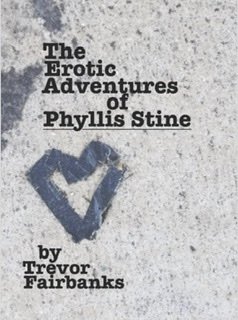How does it go… Hi my names Graham and I am an an audiophile and its been two months since my last sonic breakdown or nirvana.
I’ll be honest and say that I’ve mostly always just thought of the term audiophile as the meta tag for all of us here on the forum. A label that we share in group therapy together and the fundamental connection that perhaps has drawn us all here to share such a diverse range of perspectives in the very first place.
I very much agree with Tim’s original covering proposition that audiophiles can be defined as lovers of sound reproduction. I’d have simply imagined that anyone on our forum that reads or writes about gear or any of our approaches to systems or sonic qualities of recordings would surely qualify for the entry requirements for being an audiophile.
But it’s interesting that it’s also slipped into usage as a derogatory tag that speaks to what we can see individually as a negative trait within the culture and reflecting excessive attachments to various ‘audiophile’ kinds of extremes or values that might not be in tune with our own particular set of audio values… so ‘audiophile’ can describe our point of connection to each other and also be a term of derision for where we see a disconnection.
I’ve done it myself at times. I’ve used it in the context of ‘audiophile’ music not just as well recorded music but where I believe the music is perceived as largely less important (or at times completely unimportant) and just a medium or vessel to ultimately appreciate sound quality and that the music and performance artistry are not factored as relevant. This reflects a failure in me to get for a long time that some of us are primarily into sound and even when listening to great performances of music are still focussed mostly on the effects of the soundfield and what the sound systems (and for me music systems) are doing.
Sonics are clearly an important element in the experience of music and in its playing and orchestration but for some the effect of the sound sits as a layer of singular focus rather than a fundamental part that can be viewed separately but then ultimately still temporally enmeshed within the appreciation of the experience of music.
While I still get a disconnect when sonic qualities of a recording are promoted without regard to what I perceive as considerably lesser qualities of performance or (for me) less meaningful music being played (whoops hyper judgemental

) I do get that every perspective of audio appreciation is valuable to us in learning about the recorded art and in it’s sharing.
So (quite a bit

) judgemental on my part and this reflects a conflict for me at times through my own journey with another (and for me ultimately deeper) aspect of me as music lover. I originally was just a music lover, then early on audio gear became a part of that relationship. Twice the audiophile element completely took over for a time, the first time it caused me to find the whole thing unfulfilling and so I sold up and stopped for years and just had a very ‘unaudiophile’ system. Later I stepped back into the pursuit with valves and a modest two way standmount setup and after straying in and out of various audiophile states and at times a shifting balance in focus between music and gear in my journey and understanding I have returned as music lover first closely following behind as a committed (or soon to be) audiophile. At any point though the deep love of music has never left me. It is my constant compass and great moderation and salvation.
Often being a music lover and an audiophile work hand in hand but also at times these two values have competed for my attention and even for me at times been in temporary conflict.
So also hi my name is Graham and I am a music lover and its been over twenty years since I have heard a Diana Krall track… and counting

.
With ‘audiophile’ recordings or ‘audiophile’ music its the same with identifying ‘audiophile’ gear and ‘audiophile’ companies or ‘audiophile’ accessories, ‘audiophile’ tweaks and in ‘audiophile’ behaviour itself I guess… all can be viewed as some kind of out of kilter state and a criticism under an attached derogatory tag or label if seen as being in conflict with our own personal audiophile compass in our current best ways to be an audiophile or to how best to pull an audio system together. We can all have our own audiophile perspectives and values and these shift around along the way. Audiophiles can express in a range of ways and have a very different mix of goals and completely different measures of what is best.
I completely get how some of us also use the ‘audiophile’ word as a criticism (I loved Karen’s earlier ‘audiopile’ comment, all kinds of awesome)… but I spose we shouldn’t forget that as lovers of sound (as well as other things like lovers of music and lovers of gear and lovers of engineering and technique and lovers of ideas about the human experience and abstracting perceptions and flow of changes in our being etc etc) that it is also a canopy that represents the nexus of our whole culture and a big part of what bring us to crossroads and to be here in the great audiopile together.







